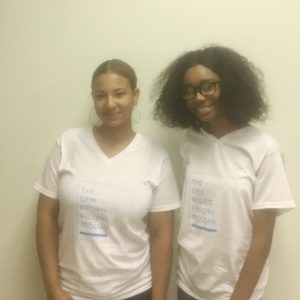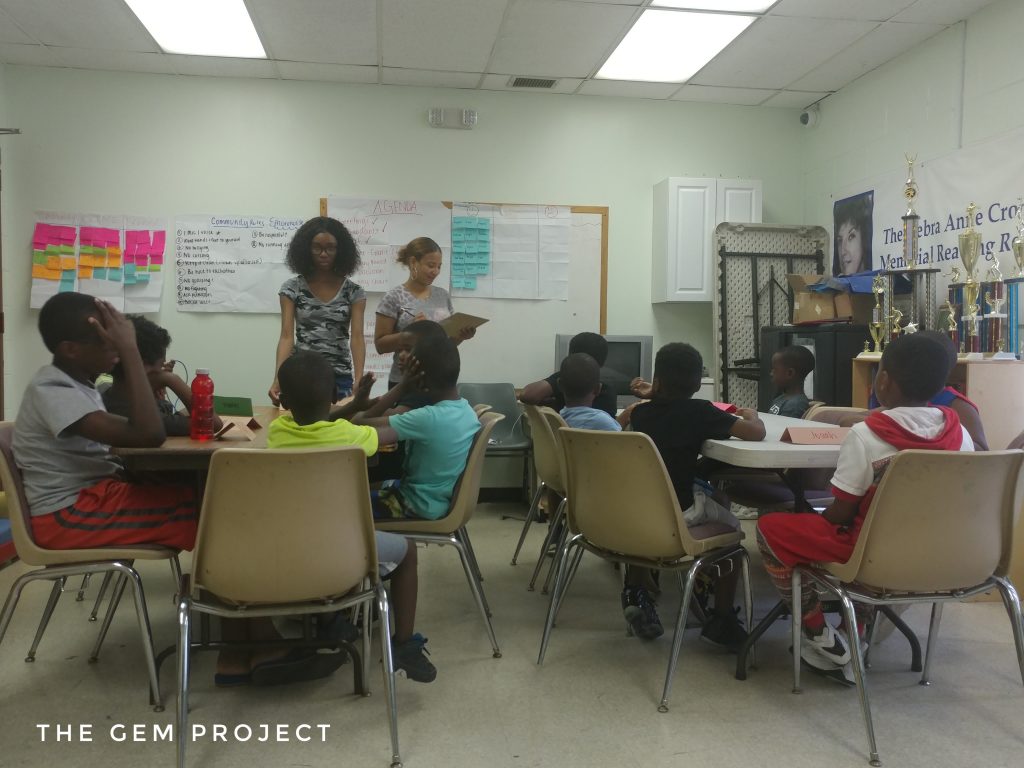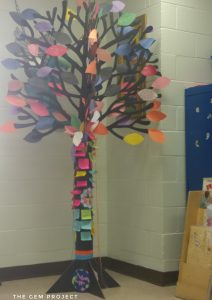
Leilani & Diamond, our Gem Project Summer Fellows, at West Side Salvation Army camp.
For this summer, The Gem Project held a summer program at the West Side Salvation Army Day Camp, leading 72 hours of our fellowship program to West Side Salvation’s 270 hours of dedicated programming for youth across 6 weeks. The camp welcomed youth between age 6-13 as early as 8 in the morning and dismissed them as late as 5 PM, 5 days a week in the West Ward area of Newark, NJ. Our fellows program was Monday-Thursday at the camp site from 12:30 PM-3:30 PM.
Our theme for our camp program at West Side Salvation Army focused on shedding light to the disturbing national trend of The School to Prison Pipeline, which sees scores of youth criminalized unfairly with zero-tolerance policies that push them out of school and into the criminal justice system.
Trained weekly for 4 hours and an additional 16 hours from our career readiness programming (totaling 40 hours of training), fellows Leilani D., 22, and Diamond A., 17, worked alongside each other to facilitate workshops under the guidance of a Gem Project program leader to 60 enrolled campers.

Fellows co-lead a workshop with their all boys group, Morehouse.
The workshops did the following:
School to Prison Pipeline: Inform, hold discussions, and arrive at probable solutions regarding the injustice surrounding a growing trend known as the School to Prison pipeline. One track of youth were responsible for developing a large-scale art project, while the other track of youth recited monologues voicing stories of actual justice involved youth. The central prop of the play was a 7 foot free-standing cardboard tree called, “The Tree of Hope.” The Tree of Hope displays on the trunk of tree the thoughts of what community, crime, and school means from youth with colorful post-its. During a community-mapping activity, youth led discussions on the connections between the three, which over the course of a few weeks opened into a discussion and further lessons to the disturbing trend known as the school to prison pipeline. The youth wrote their reflections on paper leaves, which displayed: facts, statements and definitions learned from our camp program.
Community Mapping: Allowed all youth to map their ideas surrounding community, school, and crime and developed ways to distill their collective knowledge to unearth the connections each brings to engage in meaningful conversation.
Build Vocabulary: Our youth learned varying terms throughout the program, which included,. These terms were reintroduced each session as a form of play through games and during their reflection exercises.

The 7 foot tall “Tree of Hope,” which was built by our camp participants at the West Side Salvation Army camp and was a focal point of our youth’s monologue play.
Strengthened Public Speaking: All participants had opportunities to work collaboratively with one another as well as present information, thoughts, and reactions from their reflection journals. Reflection was practiced every day at the end of each session. While it was optional to share aloud of what our youth wrote, all participants engaged.
Engaged in Ongoing Reflection: At the start of sessions and at the conclusion, camp participants and fellows engaged in reflection both written and verbal. All participants were allowed to express themselves in different ways, like drawing or writing poems or essays.
Produced Work: The Tree of Hope prop and monologue from camp participants, telling the stories of justice involved youth.
In the future, we plan to partner with many high schools and colleges with this program. If you would like to support us in our journey, please consider placing a tax-deductible donation, volunteer on a committee, or Board open seat. For questions, email project@thegemproject.org.

